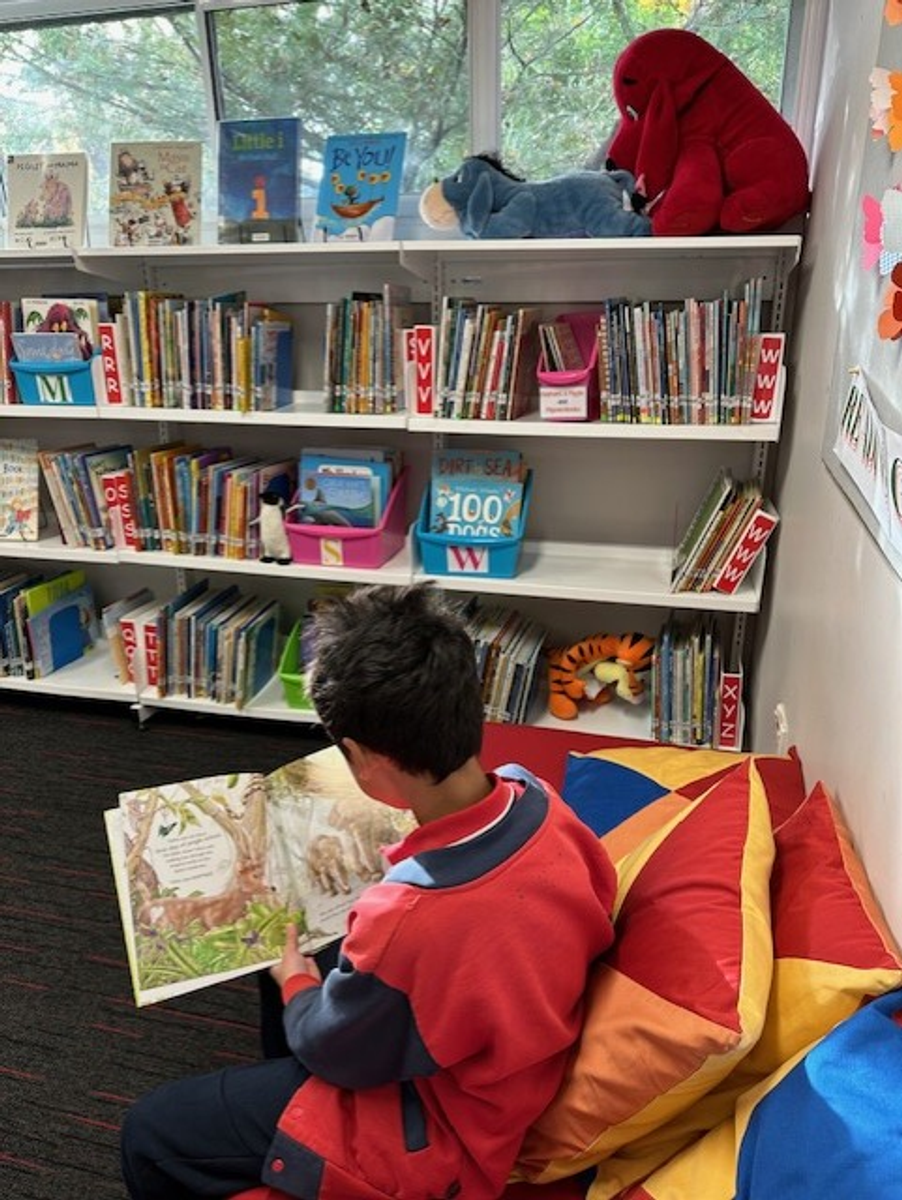Assistant Principal

Sharon Lomas
Assistant Principal
Encouraging Literacy at Home:
Parents hear it all the time: "it’s important to read to your children". But why exactly is that? And does it matter how, when or what you read to them?
The Importance of Reading to Your Child
Research has found that young children whose parents read to them daily have been exposed to at least 290,000 more words by the time they enter kindergarten than children who aren’t read to regularly. And depending on how much daily reading time children get, that number can go up to over a million words. All that exposure likely makes it easier for children to expand their vocabularies and understand the variety of texts they’ll need to read as they get older, both inside school and out.
The Importance of Listening to Your Child Read
One of the most empowering and supportive activities we can participate in as families is sitting down to listen to our children read. Not only is this a special bonding time, but the educational benefits are immense and lasting. In this piece, we explore why listening to your child read at home is essential for their development and how you can make these reading sessions both effective and enjoyable.
Why Is It Important to Hear Your Child Read?
1. Boosts Reading Skills: Regular practice is fundamental in mastering any skill, and reading is no exception. When children read aloud, they improve their word recognition, pronunciation, and syntax. Listening to them lets you gently correct mistakes, guide them through difficult passages, and help them understand complex vocabulary.
2. Enhances Comprehension: Asking questions about the story or text helps deepen understanding. Discuss what’s happening, predict what might occur next, and connect events to real-life experiences or other books. This interaction enriches their ability to comprehend and retain information.
3. Builds Confidence: The more children read aloud, the more confident they become in communicating and expressing themselves. This confidence extends beyond reading to other areas of school and social interactions.
4. Cultivates a Lifelong Love of Reading: Children who associate reading with positive experiences are more likely to develop a lifelong passion for literature. Enjoyable moments discussing a book can lead to a permanent appreciation of reading.
Early Years Readers - How to Support Your Child with Decodable Readers at Home
Establish a Routine: Like any skill, reading improves with practice. Set aside a regular time each day for reading, creating a routine that makes reading a regular part of your child’s day.
Be Patient and Positive: Encourage your child with positive reinforcement. If they struggle with a word, give them time to sound it out, and provide help only if necessary. Celebrate their successes, no matter how small.
Discuss the Book: After reading, talk about the book. Ask questions about the story, what might happen next, or how a character feels. This not only improves comprehension but also makes the experience more enjoyable.
Progress with Their Pace: Gradually introduce new decodable books that slightly extend their current phonics knowledge. This progression should ideally align with the phonics instruction they receive at school.
Junior and Senior School -How to Support Your Child’s Reading Their Home Reader or Library Book
Create a Regular Routine: Set aside a specific time each day for reading. Whether it’s after dinner or before bedtime, consistency helps build a stable routine and signals that reading is a priority.
Choose the Right Books: Engage your child in selecting books that interest them. Books that are too difficult can be frustrating, while those that are too easy might not provide enough challenge. Find the sweet spot that keeps them engaged and offers just the right amount of challenge to keep learning.
Use Praise Effectively: Focus on praising the effort rather than just the outcome. Commend them for trying hard words, persevering through challenging sections, or making predictions about the story.
Be Patient and Encouraging: There will be good days and bad days. Reading should be a stress-free experience. Your patience and encouragement as they tackle new words or concepts will help them keep a positive attitude toward reading.
Engage in Discussions: Talk about the book. This can be as simple as asking what they liked about the story or discussing the characters’ decisions. Such discussions can enhance critical thinking skills.
In Conclusion
Hearing your child read at home is more than just a literacy boost; it's a doorway to a broader understanding and a stronger relationship. As parents and guardians, your involvement is crucial in shaping competent readers, imaginative thinkers, and confident learners. Let’s embrace this fantastic opportunity and make reading a joyful and enriching part of our children’s lives. We can inspire a new generation of readers, thinkers, and leaders.




